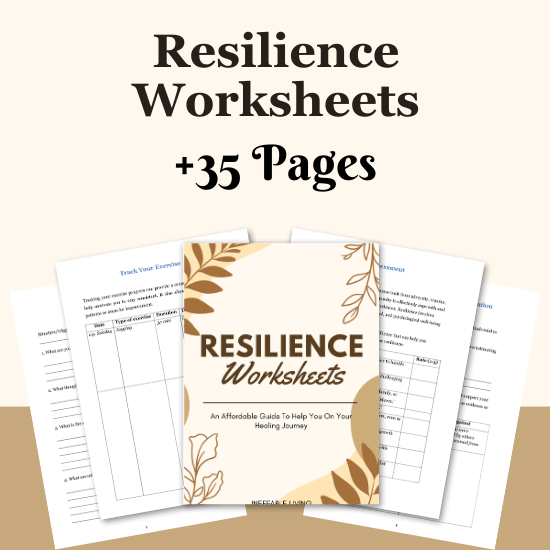A mental health support plan is a proactive approach to taking care of your mental well-being, helping you identify your needs, set up coping strategies, and establish a support system for times when you’re feeling overwhelmed.
Here are steps to help you create a personalized mental health support plan that you can rely on for stability and resilience.
Why You Need a Mental Health Support Plan
Stress Is Predictable
Life will throw curveballs — deadlines, loss, loneliness, triggers, or exhaustion. You may not control when they come, but you can control how prepared you are.
Memory Fades During Crisis
When you’re overwhelmed, it’s harder to remember what helps. A plan gives you structure when clarity feels out of reach.
You Deserve to Be Supported by You
A plan isn’t self-indulgence — it’s self-loyalty. It’s how you say: “I will not abandon myself.”
What a Mental Health Support Plan Includes
This isn’t a one-size-fits-all checklist — it’s a personalized toolkit. The goal is to identify what helps you cope, who supports you, and how to stay safe during emotional low points.
How to Create a Mental Health Support Plan for Yourself?
1. Identify Your Personal Mental Health Goals
Clarifying your goals for mental health gives you direction and a sense of purpose in managing your well-being. Your goals could relate to reducing anxiety, improving mood stability, or enhancing self-esteem.
How to Practice: Write down 1–3 goals that reflect what you want to achieve. For example, “I want to manage stress better,” or “I want to feel more connected to my friends.” Setting clear intentions helps guide your plan and keeps you focused.
Related: How to Use Atomic Habits for Mental Health?
2. Recognize Early Warning Signs and Triggers
Understanding your early warning signs and triggers helps you catch moments of stress before they escalate. Knowing what situations or emotions tend to affect you makes it easier to take proactive steps.
How to Practice: Reflect on past times you felt distressed and note common triggers (e.g., tight deadlines, social events, sleep deprivation) and warning signs (e.g., irritability, fatigue, avoidance). Awareness of these cues enables you to address them early on.
3. Establish Healthy Daily Routines
Routine supports mental health by creating predictability, reducing decision fatigue, and promoting healthy habits. A balanced routine that includes self-care elements can make a big difference in how you feel day-to-day.
How to Practice: Incorporate practices like regular sleep, balanced nutrition, daily movement, and short mindfulness exercises. A consistent daily routine supports mental clarity, energy, and resilience, making you better equipped to handle challenges.
Related: Top +100 Journal Prompts For Mental Health [+Free PDF Printable!]
4. Develop a List of Coping Strategies
Having a variety of coping strategies at hand helps you manage stress or difficult emotions when they arise. Effective coping mechanisms can include both quick fixes for immediate relief and longer-term activities that promote resilience.
How to Practice: Write down your favorite coping strategies, such as deep breathing, listening to music, journaling, or going for a walk. Keep this list in an accessible place, like your phone or notebook, so you can refer to it whenever you need it.
Related: Top 40 Mental Health Questions for Journaling
5. Identify and Build Your Support Network
Knowing who you can turn to for support is essential for maintaining mental health. A strong support system can include friends, family members, or professionals who you trust and can confide in.
How to Practice: List the people you feel comfortable reaching out to, including their contact details if needed. Identify what kind of support each person provides, whether it’s emotional, practical, or advice. This list helps remind you that support is available and that you don’t have to go through tough times alone.
Related: 7-Step Quick Mental Health Check-In Guide
6. Set Up Regular Check-Ins with Yourself
Regular self-check-ins allow you to assess your mental health and make adjustments to your plan as needed. This practice helps you stay in tune with your emotions, thoughts, and stress levels.
How to Practice: Set aside time weekly to reflect on your mood, energy, and mental state. You might ask yourself, “How am I feeling?” “What went well this week?” and “What challenges did I face?” Write down your reflections, and if you notice any patterns, consider adjustments to your routines or support strategies.
7. Create a List of Calming and Comforting Activities
Having a go-to list of comforting activities can help you shift your mood when feeling anxious or low. Engaging in enjoyable or calming activities can provide relief and help ground you in the present.
How to Practice: List activities that bring you comfort, such as reading, cooking, spending time in nature, or calling a friend. Refer to this list when you need a break or want to engage in something that lifts your spirits.
Related: 10 Essential Mental Health Habits for Daily Life
8. Establish Boundaries to Protect Your Mental Health
Setting boundaries protects your mental well-being by allowing you to prioritize your needs. Boundaries might include limiting social media, setting work limits, or choosing how much time to spend with others.
How to Practice: Identify where you need boundaries to feel balanced, and establish guidelines that protect your mental energy. For instance, “I won’t check emails after 7 p.m.” or “I’ll take breaks during family gatherings if I feel overwhelmed.” Boundaries help you maintain a healthy balance and reduce stress.
9. Identify Professional Resources and Hotlines
In times of crisis or when professional guidance is needed, knowing where to turn can help you access the support you need promptly. Professional resources provide specialized assistance that complements your support network.
How to Practice: List local mental health professionals, helplines, or online therapy platforms that you feel comfortable reaching out to. Include their contact information, so it’s readily available if you’re in need. You might also consider scheduling regular therapy appointments to maintain your well-being.
Related: 10 Simple Ways to Look After Your Mental Health
10. Establish “Emergency” Steps for High-Stress Situations
Creating an emergency response plan for high-stress situations ensures you have a structured approach if you’re feeling overwhelmed or in crisis.
How to Practice: Write down three to five steps you can follow if you’re in an emotional crisis, such as “1) Practice deep breathing for five minutes, 2) Call a supportive friend, 3) Use a grounding exercise, 4) Contact a therapist if needed.” Following a set of actions provides direction and reassurance in moments of high stress.
11. Celebrate Progress and Acknowledge Efforts
Progress, no matter how small, is worth celebrating. Recognizing your efforts helps build a positive mindset and encourages you to keep prioritizing your mental health.
How to Practice: Set small milestones and reward yourself when you achieve them, such as practicing mindfulness for a week or managing stress during a challenging time. Celebrate your efforts with a treat, a relaxing activity, or by sharing your achievement with a friend. Acknowledging your progress reinforces your commitment to mental well-being.
Related: 21-Day Mental Health Challenge

Conclusion
Creating a mental health support plan empowers you to take control of your mental wellness by providing structure, tools, and a support system.
With this personalized plan, you’ll be better equipped to navigate challenges and sustain your mental health over time, building resilience and peace into your daily life.



